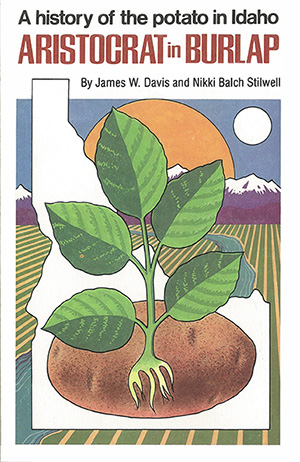.jpg
) This plant in Burley, Idaho , was built in one of the early attempts to produce instant mashed potatoes. The tower, which was intended to be used in the drying process, failed to work as planned. The plant was later purchased by J.R. Simplot Co. and a fluidized bed process installed. Now shut down, the building is used as a warehouse.
This plant in Burley, Idaho , was built in one of the early attempts to produce instant mashed potatoes. The tower, which was intended to be used in the drying process, failed to work as planned. The plant was later purchased by J.R. Simplot Co. and a fluidized bed process installed. Now shut down, the building is used as a warehouse.
While demand for frozen potato products was growing at a rapid rate, research and processing improvements had made the dehydrated potato granule into a highly acceptable mashed potato. Not only was the United States government buying large quantities for military use, but the R. T. French Company was experiencing some success with retail packages of instant potatoes, and the restaurants and institutions were switching to instant mashed as a convenient way of serving this American favorite.
Meanwhile, a new product had been developed by the United States Department of Agriculture dehydrated potato flakes. Flakes provided another means of preparing mashed potatoes. The dehydrated flakes were reconstituted in much the same way as potato granules and although the flakes did not have the density of potato granules, this relatively greater bulk proved to be an advantage for consumer packages. A larger-looking package of dehydrated potatoes could be sold in flake form, and the housewife found it difficult to believe that she was getting the same amount of finished product from potato granules. Flakes also proved to be easier to prepare because they did not require as careful measurement of water and dehydrated potatoes to produce satisfactory end results.
Since the development work and the early marketing had primarily been done by Idaho processors, Idaho had a distinct time advantage over other potato-producing areas. The building of processing facilities in other growing areas, however, soon created a situation of competition. The inherent excellence of the Russet Burbank variety carries through into the processed form, and this virtually forced other potato producing areas to grow Russets for processing rather than attempt to process their traditional varieties.
The demand for frozen French fries grew at such a rapid rate that Idaho processors found they needed to construct additional plants to supply their customers. Rather than tie their entire supply base to one growing area, processors looked afield, and some of the additional capacity was developed in other states, a pattern that includes most of the large processing companies now operating in Idaho.


.jpg
) This plant in Burley, Idaho , was built in one of the early attempts to produce instant mashed potatoes. The tower, which was intended to be used in the drying process, failed to work as planned. The plant was later purchased by J.R. Simplot Co. and a fluidized bed process installed. Now shut down, the building is used as a warehouse.
This plant in Burley, Idaho , was built in one of the early attempts to produce instant mashed potatoes. The tower, which was intended to be used in the drying process, failed to work as planned. The plant was later purchased by J.R. Simplot Co. and a fluidized bed process installed. Now shut down, the building is used as a warehouse.